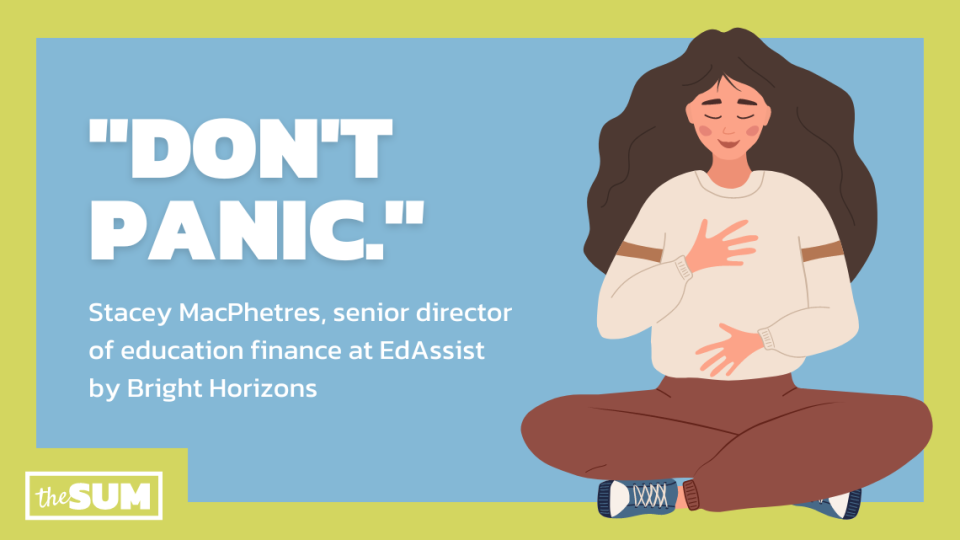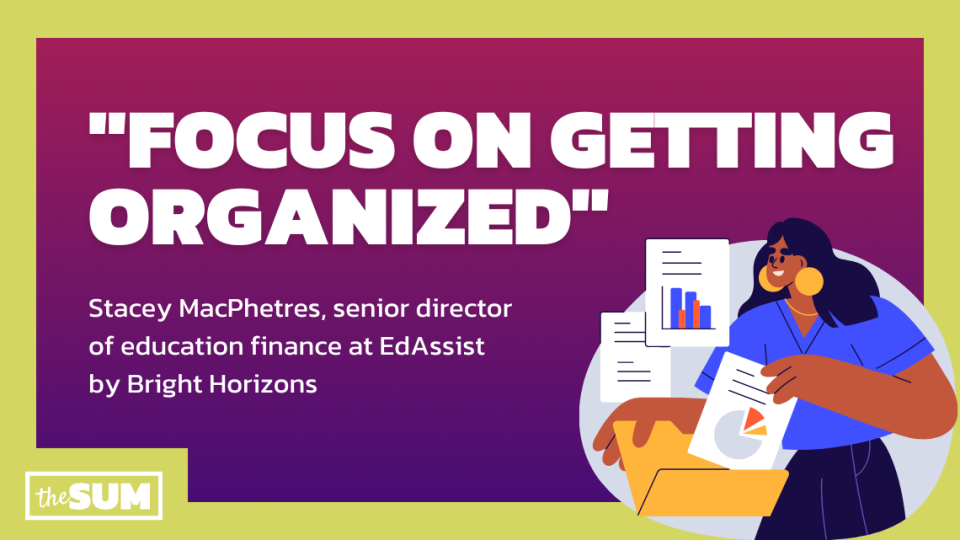Can your employer pay your student loans? Here’s how to check (and ask) for help
Your employer might be able to help with your student loans. This is what you should know.
Student loan payments — and interest accrual — have been paused since March 2020.
The restarting of payments could be more difficult for borrowers who left school since that pause began, said Stacey MacPhetres, senior director of education finance at EdAssist by Bright Horizons, as they incorporate this expense. Between both the Biden and Trump administrations, the pause was extended nine times, according to NerdWallet.
That’s coming to an end.

The Supreme Court on June 30 struck down President Joe Biden’s student loan forgiveness plan, ruling 6-3 that Biden’s administration overstepped its authority.
“My plan would not only have been life changing for millions of Americans but it would have been good for the American economy,” Biden said during a speech hours after the court’s decision was released, adding it would have allowed for more people to buy more homes, start businesses and raise families. “Millions of people would have felt they could get on with their lives.”
Six states (Arkansas, Iowa, Kansas, Missouri, Nebraska and South Carolina) brought the case against the plan estimated to cost $400 billion over the next 30 years. It would have canceled or reduced federal student loans for 43 million people.
Borrowers would have been eligible for up to $20,000 if they were Pell Grant recipients, or $10,000 otherwise. It was limited to individuals making less than $125,000 or households making twice that.
Republican Sen. Eric Schmitt, who was Missouri attorney general when the state joined the lawsuit, said in a statement that, “Joe Biden’s student loan bailout was nothing more than a thinly veiled political ploy on a shaky foundation to score cheap points,” The Kansas City Star reported.
Student loan payments are set to resume in October. Interest will begin racking up again in September.
The median monthly payment before the pause was $222.
“I think my immediate reaction obviously was disappointment for all those borrowers who are hoping for relief, but also recognizing that we now know exactly what the landscape looks like and it’s time to get started,” student loan expert MacPhetres said.
How your job could help
The first way is through direct, tax-free contributions your job can make to your student loans, she said. Through 2025, employers can repay up to $5,250 on employee student loans. The program was put in place first through the 2020 CARES Act.
Then in 2022, the Secure Act 2.0 was signed into law. Starting in January 2024, your employer can contribute directly to your 401(k) retirement plan based on your student loan payments, Investopedia reported. This action is supposed to help workers who can’t save for retirement, “because they are overwhelmed with student debt, and thus are missing out on available matching contributions for retirement plans,” according to Section 110.
Not as many employers have been participating because of the pause, but now is the time to revisit this, MacPhetres said.
She added that some employers offer student loan coaching as well.
So, how do you know if your employer offers this help?
Start by checking any employee portal where you can look at your benefits — it might be under something like financial wellness or fringe benefits.
If you don’t see anything, just reach out to HR or a benefits department. You can ask if it’s something they’re offering. And if not, you can suggest that they do. Business Insider featured a sample email script you could use to ask your employer.
“This feels like a good moment to strike while the iron is hot, if you’re an employee seeking that benefit,” MacPhetres said.

Repaying student loan tips
MacPhetres said to not panic. “Let’s take a moment, take a beat, think about what that looks like. We have some time.”
The next step, she said, is getting organized. Have your loans been moved to a new servicer? To figure that out, you need to log into the Federal Student Aid website. There, you can see where your loans are being serviced, look at your balance and run loan simulators to get a feel for what your payments might look like.
Whats your spending plan look like? Take a look at your personal spending so you can figure out how to incorporate this payment into your life.
What’s in Biden’s new plan?
Biden last week announced a temporary on-ramp repayment program that removes the threat of defaulting or having your credit harmed, though monthly payments are still due and interest is still adding up.
He also announced the Saving on a Valuable Education Plan, an income-driven plan, that cuts how much borrowers have to pay of their discretionary income, raises how much income is considered non-discretionary, forgives loan balances after 10 years of payments for those who originally borrowed $12,000 or less, and doesn’t charge unpaid monthly interest so loan balances don’t grow as long as you make monthly payments.
What is The Sum?
The Sum is your friendly guide to personal finance and economic news.
We’re a team of McClatchy journalists cutting through the financial jargon so you know how these issues impact your life. We verify information from diverse sources and keep the facts front-and-center, making finance and economic news add up for you.
You can follow The Sum on Instagram and TikTok.
Ready to take the first step to getting your finances under control? You can sign up for our five-week budgeting newsletter at thesum.news.

